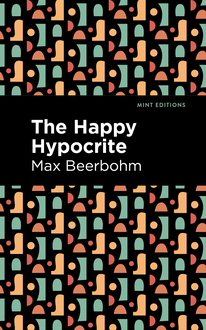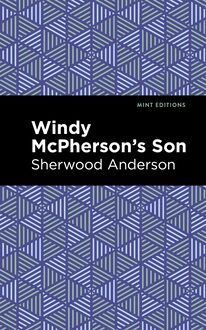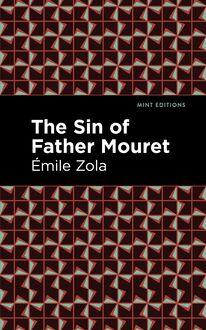-
 Univers
Univers
-
 Ebooks
Ebooks
-
 Livres audio
Livres audio
-
 Presse
Presse
-
 Podcasts
Podcasts
-
 BD
BD
-
 Documents
Documents
-
- Cours
- Révisions
- Ressources pédagogiques
- Sciences de l’éducation
- Manuels scolaires
- Langues
- Travaux de classe
- Annales de BEP
- Etudes supérieures
- Maternelle et primaire
- Fiches de lecture
- Orientation scolaire
- Méthodologie
- Corrigés de devoir
- Annales d’examens et concours
- Annales du bac
- Annales du brevet
- Rapports de stage
La lecture à portée de main
Vous pourrez modifier la taille du texte de cet ouvrage
Découvre YouScribe en t'inscrivant gratuitement
Je m'inscrisDécouvre YouScribe en t'inscrivant gratuitement
Je m'inscrisEn savoir plus
Vous pourrez modifier la taille du texte de cet ouvrage
En savoir plus

Description
The Power of Sympathy (1789) is a novel by American author William Hill Brown. Considered the first American novel, The Power of Sympathy is a work of sentimental fiction which explores the lessons of the Enlightenment on the virtues of rational thought. A story of forbidden romance, seduction, and incest, Brown’s novel is based on the real-life scandal of Perez Morton and Fanny Apthorp, a New England brother- and sister-in-law who struck up an affair that ended in suicide and infamy. Inspired by their tragedy, and hoping to write a novel which captured the need for rational education in the newly formed United States of America, Brown wrote and published The Power of Sympathy anonymously in Boston. The novel, narrated in a series of letters, is the story of Thomas Harrington. He falls for the local beauty Harriot Fawcet, initially hoping to make her his mistress. But when she rejects him, his friend Jack Worthy suggests that he attempt to court and then propose to her, which is the honorable and lawful choice. Thomas’ overly sentimental mind is persuaded by Jack’s unflinching reason, and so he decides to pursue Harriot once more. This time, he is successful, and the two eventually become engaged, but their happiness soon fades when Mrs. Eliza Holmes, a family friend of the Harringtons, reveals the true nature of Harriot’s identity. As the secrets of Mr. Harrington—Thomas’ father—are revealed, the couple are forced to choose between the morals and laws of society and the passionate love they share. The Power of Sympathy is a moving work of tragedy and romance with a pointed message about the need for education in the recently founded United States. Despite borrowing from the British and European traditions of sentimental fiction and the epistolary novel, Brown’s work is a distinctly American masterpiece worthy of our continued respect and attention. With a beautifully designed cover and professionally typeset manuscript, this edition of William Hill Brown’s The Power of Sympathy is a classic of American literature reimagined for modern readers.
Sujets
Informations
| Publié par | Mint Editions |
| Date de parution | 03 août 2021 |
| Nombre de lectures | 0 |
| EAN13 | 9781513273679 |
| Langue | English |
Informations légales : prix de location à la page 0,0450€. Cette information est donnée uniquement à titre indicatif conformément à la législation en vigueur.
Extrait
The Power of Sympathy
William Hill Brown
The Power of Sympathy was first published in 1789.
This edition published by Mint Editions 2021.
ISBN 9781513268675 | E-ISBN 9781513273679
Published by Mint Editions®
minteditionbooks.com
Publishing Director: Jennifer Newens
Design & Production: Rachel Lopez Metzger
Project Manager: Micaela Clark
Typesetting: Westchester Publishing Services
TO THE
YOUNG LADIES,
OF
United Columbia,
These Volumes,
Intended to represent the specious C AUSES ,
AND TO
Expose the fatal C ONSEQUENCES
OF
SEDUCTION;
To inspire the F EMALE M IND
With a principle of S ELF C OMPLACENCY
AND TO
Promote the E CONOMY of H UMAN L IFE,
ARE INSCRIBED,
With Esteem and Sincerity,
By their
Friend and Humble Servant,
The Author.
B OSTON , Jan. 1789
C ONTENTS P REFACE L ETTER I . H ARRINGTON TO W ORTHY L ETTER II . W ORTHY TO H ARRINGTON L ETTER III . H ARRINGTON TO W ORTHY L ETTER IV . M ISS H ARRIOT F AWCET TO M ISS M YRA H ARRINGTON L ETTER V . M ISS M YRA H ARRINGTON TO M RS. H OLMES L ETTER VI . H ARRINGTON TO W ORTHY L ETTER VII . M RS. H OLMES TO M ISS H ARRINGTON L ETTER VIII . W ORTHY TO H ARRINGTON L ETTER IX . H ARRINGTON TO W ORTHY L ETTER X . W ORTHY TO M YRA L ETTER XI . M RS. H OLMES TO M YRA L ETTER XII . M RS. H OLMES TO M YRA L ETTER XIII . W ORTHY TO M YRA L ETTER XIV . H ARRINGTON TO W ORTHY L ETTER XV . H ARRINGTON TO W ORTHY L ETTER XVI . H ARRINGTON TO W ORTHY L ETTER XVII . H ARRINGTON TO W ORTHY L ETTER XVIII . H ARRINGTON TO W ORTHY L ETTER XIX . H ARRINGTON TO H ARRIOT L ETTER XX . H ARRINGTON TO H ARRIOT L ETTER XXI . H ARRIOT TO M YRA L ETTER XXII . H ARRIOT TO M YRA L ETTER XXIII . H ARRIOT TO M YRA L ETTER XXIV . H ARRIOT TO M YRA L ETTER XXV . M YRA TO H ARRIOT L ETTER XXVI . M YRA TO M RS. H OLMES L ETTER XXVII . W ORTHY TO M YRA L ETTER XXVIII . W ORTHY TO M YRA L ETTER XXIX . M RS. H OLMES TO M YRA L ETTER XXX . M RS. H OLMES TO M YRA L ETTER XXXI . M RS. H OLMES TO M YRA L ETTER XXXII . H ARRINGTON TO W ORTHY L ETTER XXXIII . M RS. H OLMES TO M YRA L ETTER XXXIV . H ARRINGTON TO W ORTHY L ETTER XXXV . M YRA TO M RS. H OLMES L ETTER XXXVI . H ARRINGTON TO W ORTHY L ETTER XXXVII . M RS. H OLMES TO M YRA L ETTER XXXVIII . M YRA TO M RS. H OLMES L ETTER XXXIX . M RS. H OLMES TO M YRA L ETTER XL . M RS. H OLMES TO M YRA L ETTER XLI . H ARRINGTON TO W ORTHY L ETTER XLII . T HE H ON. M R. H ARRINGTON TO THE R EV. M R. H OLMES L ETTER XLIII . T HE H ON. M R. H ARRINGTON TO THE R EV. M R. H OLMES L ETTER XLIV . H ARRINGTON TO W ORTHY L ETTER XLV . M YRA TO M RS. H OLMES L ETTER XLVI . H ARRINGTON TO W ORTHY L ETTER XLVII . H ARRINGTON TO W ORTHY L ETTER XLVIII . H ARRINGTON TO W ORTHY L ETTER XLIX . T HE H ON. M R. H ARRINGTON TO THE R EV. M R. H OLMES L ETTER L . H ARRIOT TO H ARRINGTON L ETTER LI . M YRA TO M RS. H OLMES L ETTER LII . H ARRINGTON TO W ORTHY L ETTER LIII . H ARRINGTON TO W ORTHY L ETTER LIV . H ARRINGTON TO W ORTHY L ETTER LV . H ARRINGTON TO W ORTHY L ETTER LVI . H ARRINGTON TO W ORTHY L ETTER LVII . H ARRINGTON TO W ORTHY L ETTER LVIII . W ORTHY TO H ARRINGTON L ETTER LIX . H ARRINGTON TO W ORTHY L ETTER LX . H ARRINGTON TO W ORTHY L ETTER LXI . W ORTHY TO H ARRINGTON L ETTER LXII . H ARRINGTON TO W ORTHY L ETTER LXIII . W ORTHY TO M RS. H OLMES L ETTER LXIV . H ARRINGTON TO W ORTHY L ETTER LXV . W ORTHY TO M RS. H OLMES
P REFACE
N OVELS have ever met with a ready reception into the Libraries of the Ladies, but this species of writing hath not been received with universal approbation: Futility is not the only charge brought against it—Any attempt, therefore, to make these studies more advantageous, has at least a claim upon the patience and candour of the publick.
I N N OVELS which expose no particular VICE, and which recommend no particular Virtue, the fair Reader, though she may find amusement, must finish them without being impressed with any particular idea: So that if they are harmless, they are not beneficial.
O F the Letters before US, it is necessary to remark, that this errour on each side has been avoided—the dangerous consequences of S EDUCTION are exposed, and the Advantages of F EMALE E DUCATION set forth and recommended.
Letter I
H ARRINGTON TO W ORTHY
Y OU may now felicitate me—I have had an interview with the charmer I informed you of. Alas! where were the thoughtfulness and circumspection of my friend Worthy? I did not possess them, and am graceless enough to acknowledge it. He would have considered the consequences, before he had resolved upon the project. But you call me, with some degree of truth, a strange medley of contradiction—the moralist and the amoroso—the sentiment and the sensibility—are interwoven in my constitution, so that nature and grace are at continual fisticuffs—To the point:—
I P URSUED my determination of discovering the dwelling of my charmer, and have at length obtained access. You may behold my Rosebud, but should you presume to place it in your bosom, expect the force of my wrath to be the infallible consequence.
I D ECLARED the sincerity of my passion—the warmth of my affection—to the beautiful Harriot —Believe me, Jack , she did not seem inattentive. Her mein is elegant—her disposition inclining to the melancholy, and yet her temper is affable, and her manners easy. And as I poured my tender vows into the heart of my beloved, a crimson drop stole across her cheek, and thus I construe it in my own favor, as the sweet messenger of hope:—
“ D O not wholly despair, my new friend; excuse the declaration of a poor artless female—you see I am not perfectly contented in my situation—(Observe, jack , I have not the vanity to think this distress altogether upon my account)—Time may therefore disclose wonders, and perhaps more to your advantage than you imagine—do not despair then.”
S UCH vulgar, uncongenial souls, as that which animates thy clay, cold carcase, would have thought this crimson drop nothing more than an ordinary blush. Be far removed from my heart such sordid, earth-born ideas: But come thou spirit of celestial language, that canst communicate by one affectionate look—one tender glance—more divine information to the soul of sensibility than can be contained in myriads of volumes!
H AIL gentle God of Love! While thou rivetest the chains of thy slaves , how dost thou make them leap for joy, as with delicious triumph. Happy enthusiasm! that while it carries us away into captivity, can make the heart to dance as in the bosom of content. Hail gentle God of Love! Encircled as thou art with darts, torments, and ensigns of cruelty, still do we hail thee. How dost thou smooth over the roughness and asperities of present pain, with what thou seest in reversion! Thou banishest the Stygian glooms of disquiet and suspense, by the hope of approaching Elysium—Blessed infatuation!
I D ESIRE you will not hesitate to pronounce an amen to my Hymn to Love, as an unequivocal evidence of your wish for my success.
Letter II
W ORTHY TO H ARRINGTON
“ W ISH you success”—In what? Who is this lady of whom you have been talking at such an inconsistent rate? But before you have leisure to reply to these inquiries you may have forgotten there is such a person, as she whom you call Harriot —I have seen many juvenile heroes, during my pilgrimage of two and twenty years, easily inflamed with new objects—agitated and hurried away by the impetuosity of new desires—and at the same time they were by no means famous for solidity of judgement, or remarkable for the permanency of their resolutions. There is such a tumult—such an ebullition of the brain in their paroxisms of passion, that this new object is very superficially examined. These, added to partiality and prepossession, never fail to blind the eyes of the lover. Instead of weighing matters maturely, and stating the evidence fairly on both sides, in order to form a right judgement, every circumstance not perfectly coincident with your particular bias, comes not under consideration, because it does not flatter your vanity. “Ponder and pause” just here, and tell me seriously whether you are in love, and whether you have sufficiently examined your heart to give a just answer.
D O you mean to insinuate that your declaration of love hath attracted the affection of the pensive Harriot? If this should be the case, I wish you would tell me what you design to do with her.
Letter III
H ARRINGTON TO W ORTHY
Boston
I C ANNOT but laugh at your dull sermons, and yet I find something in them altogether displeasing; for this reason I permit you to prate on. “Weigh matters maturely!” Ha! ha! why art thou not arrayed in canonicals? “What do I design to do with her?” Upon my word, my sententious friend, you ask mighty odd questions. I see you aim a stroke at the foundation upon which the pillar of my new system is reared—and will you strive to batter down that pillar? If you entertain any idea of executing such talk, I foresee it will never succeed, and advise you timely to desist. What! dost thou think to topple down my scheme of pleasure? Thou mightest as well topple down the pike of Teneriffe.
I S UPPOSE you will be ready to ask, why, if I love Harriot , I do not marry her—Your monitorial correspondence has so accustomed me to reproof, that I easily anticipate this piece of impertinence—But who shall I marry? That is the question. Harriot has no father—no mother—neither is there aunt, cousin, or kindred of any degree who claim any kind of relationship to her. She is companion to Mrs. Francis , and, as I understand, totally dependent on that lady. Now, Mr. Worthy , I must take the liberty to acquaint you, that I am not so much of a republican as formally to wed any person of this class. How laughable would my conduct appear, were I to trace over the same ground marked out by thy immaculate maculate footsteps—To be heard openly acknowledged for my bosom companion, my daughter of the democratick empire of virtue
-
 Univers
Univers
-
 Ebooks
Ebooks
-
 Livres audio
Livres audio
-
 Presse
Presse
-
 Podcasts
Podcasts
-
 BD
BD
-
 Documents
Documents
-
Jeunesse
-
Littérature
-
Ressources professionnelles
-
Santé et bien-être
-
Savoirs
-
Education
-
Loisirs et hobbies
-
Art, musique et cinéma
-
Actualité et débat de société
-
Jeunesse
-
Littérature
-
Ressources professionnelles
-
Santé et bien-être
-
Savoirs
-
Education
-
Loisirs et hobbies
-
Art, musique et cinéma
-
Actualité et débat de société
-
Actualités
-
Lifestyle
-
Presse jeunesse
-
Presse professionnelle
-
Pratique
-
Presse sportive
-
Presse internationale
-
Culture & Médias
-
Action et Aventures
-
Science-fiction et Fantasy
-
Société
-
Jeunesse
-
Littérature
-
Ressources professionnelles
-
Santé et bien-être
-
Savoirs
-
Education
-
Loisirs et hobbies
-
Art, musique et cinéma
-
Actualité et débat de société
- Cours
- Révisions
- Ressources pédagogiques
- Sciences de l’éducation
- Manuels scolaires
- Langues
- Travaux de classe
- Annales de BEP
- Etudes supérieures
- Maternelle et primaire
- Fiches de lecture
- Orientation scolaire
- Méthodologie
- Corrigés de devoir
- Annales d’examens et concours
- Annales du bac
- Annales du brevet
- Rapports de stage
















